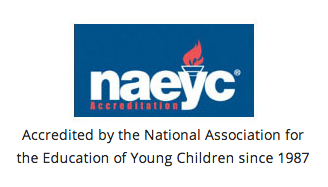What is a cooperative preschool?
A cooperative preschool allows you to be directly involved with your child’s preschool education. Being able toparticipate with your child, and the teacher, guarantees young children are safe and with the best teachers. Interacting with a community of other parents and caregivers who share your commitment to childhood and receiving modeling by the teacher as you help, gives you opportunities to learn alongside your child. Most importantly, choosing a cooperative preschool gives you extra time to bond with your child and create memories together. Your child will always know that education is important in your family because you live it everyday.
Why choose a cooperative preschool?
At Trinity, we see partnering with parents and caregivers as an opportunity for children to be exposed to various cultures and styles of learning. Teachers design and implement the curriculum each day and integrate co-oping adults in specific activities. In addition to participating in fun, innovative activities, co-oping affords the opportunity to observe teachers facilitating age-appropriate social and emotional development. Parents and caregivers gain a new perspective and communication techniques to help navigate early child development.
How much of a time commitment does Trinity require of parents who co-op?
Preschool co-oping differs between schools. At Trinity, the co-op time commitment in our Threes and Pre-K programs is once or twice a month, depending on the selected co-op plan . Families co-op once a week in our Twos program. Please note: Every attempt is made to honor the 1-day or 2-day co-op preference per month. According to the actual number of school days per month, families may be scheduled for more, or fewer days, but never more than nine or eighteen during the school year.
I work full-time and so does my spouse, how would we be able to co-op?
We work with many career families to accommodate their preferred work day whenever possible (which is most of the time!). We welcome family members to co-op as well. In addition, the total commitment is typically just three and a half hours. Our flexible approach presents a very manageable opportunity for working parents.
How will I know what do to?
On your co-op day, you oversee a specific area or activity such as art, snack, yard, etc. You arrive a bit early to sign up for your area and chat with the teachers about any special instructions. Co-oping adults are guided and assisted throughout their co-op day by Teachers and Aides.
What are the other parent commitments at Trinity?
- Twos Class: Two required parent meetings per year.
- Threes and Pre-K Classes: Three parent meetings per year.
What are the expectations for how I interact with other parents, children and the staff while working in the classroom?
Teachers,parents and caregivers work side by side while helping everyone to grow and learn. Co-oping adults who might not feel comfortable disciplining children or providing conflict resolution solutions need not worry, as teachers are effective coaches as well as skilled role models. Teachers are there to help children learn, to provide co-oping adults with information on child development, and help strengthen the important connection between home and school. Families report that they enjoy their work within the co-op environment because they form lasting friendships with other families and the hands-on parent education makes them better parents and caregivers.
Parents are invited and encouraged to communicate with the Teachers or Aides on an on-going basis to broaden their understanding of in-class techniques and child development norms.

